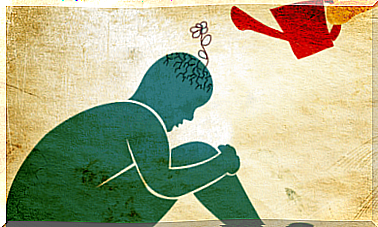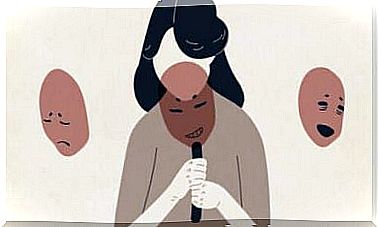A Bad Psychologist Can Do A Lot Of Harm

Sometimes we trust so-called specialists almost blindly. The psychologist Daniel Goldstein said that “psychology is a manual for the mind” . But what would this handbook be for if it got into the hands of a bad psychologist?
A bad psychologist can do a lot of damage to your psyche, just like many others: a bad doctor or physical therapist can not only prevent a cure, but make the original problem worse. The psychologist Victor Frankl used the term “iatrogenic psychosis” to define problems that are initiated by the psychologist.
But are we alone in this situation? If you are not a doctor or a therapist, how can you identify and overcome such problems?
How to Spot a Bad Psychologist
To recognize a bad psychologist, one should know the profession well. Juan Armando Corbin gives us a helping hand in this regard, because this expert in the field of work and coaching psychology has put together a list that names criteria that expose a bad therapist.
Do you feel judged
Your therapist is not there to judge you. His job is to understand you, not to impose his will on you. He doesn’t have to share your point of view, but still be empathetic. With understanding and the right resources, he can help you. But if he criticizes you, then he is entering personal territory and overstepping the boundaries of his profession.

Can’t he help you?
There are many different disciplines in psychology. Of course, psychologists can be confronted with cases for which they are simply not experts. So if your therapist does not have the required qualifications, then it is better not to visit him again.
Remember: there are psychologists who specialize in several areas. So it is entirely possible for a practitioner to deal with problems of very different kinds and do them well.
Is he focusing too much on himself?
If your therapist is too focused on himself, therapy is unlikely to be very effective. Some specialists bring up examples from their own life in order to create an open atmosphere and to find a common denominator with their patient. But in the end, the discussion sometimes centers on a long list of their own accomplishments that have nothing to do with your problem. This development is probably not for your best.
Does it strengthen a healthy emotional bond?
The psychologist should make the patient feel good, but he should never overstep emotional boundaries. Trust is necessary in this relationship, but it should be strictly professional. Physical attraction, for example, is seen as an obstacle to successful therapy in most areas of psychology.

Is he actively listening?
How can a psychologist treat his patient if he is not actively listening to him? You are vulnerable and sensitive during therapy because you open yourself to the psychologist. Therefore , everyone should have their five senses focused on you. He needs to know how to interpret all of your words and gestures, or at least devote all of his strength to this task. Otherwise, they will miss the connection with you and miss out on important details that could help treat you.
“The ability to be in the present moment is an important requirement for mental wellbeing.”
Abraham Maslow
Do you think that your problem is actually important to him?
What may seem trivial to one person can be a whole mountain of problems for another. For this reason , the psychologist should properly estimate the patient’s problems. If he makes them smaller, then he will not understand the patient’s symptoms or be unable to offer appropriate therapy.
Does he talk to you about other patients?
Therapists are committed to absolute discretion. You should never talk to other patients about your problems or vice versa. So if you think they are giving you information about other people they are treating, that is abuse of office and you can even report them for it.
Does he understand your value system?
Everyone has their own value system and it may well be that yours does not match that of your psychologist. However, that doesn’t give him the right to question yours. If your psychologist judges you and thinks that their ideals are better than yours, then they are making a mistake. He may not like the way you think, but he has to respect it.

Is he referring you to a specialist?
Some problems cannot be solved with psycholotherapy alone. Other treatments may also be required, such as nutritional advice. Or it could be that the therapist simply cannot give you any more advice. At this point, he should refer you to a colleague as well.
“Psychologists help measure the likelihood that a goal will be attainable.”
Edward Thorndike
So if you think you are in the hands of a bad psychologist, leave him immediately. He’s not doing you a favor. Make sure that your psychology doesn’t have these qualities, because unfortunately not everyone who calls themselves a therapist has the knowledge and attitude to help you.









